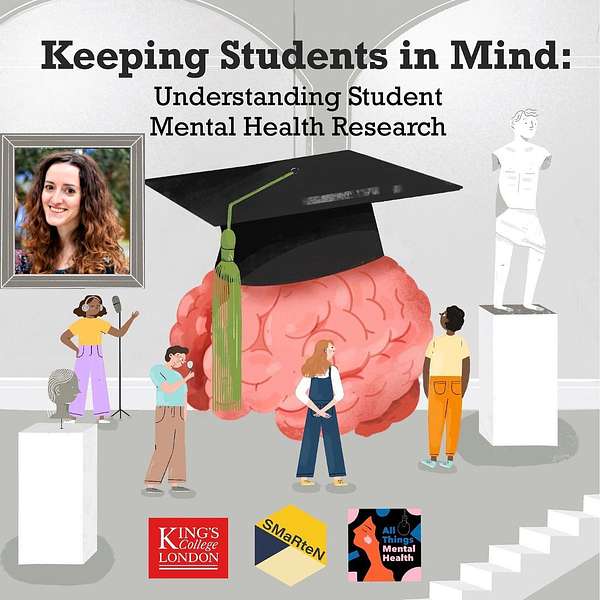
All Things Mental Health
We're a mental health podcast, focusing on young minds and students. We bridge the gap between research and lived experience, creating space for new dialogue to emerge. With a recent feature in the Guardian, this podcast is in the top 15% of podcasts shared globally. Partners inc. University of Oxford, King's College London, Student Minds, SMaRteN and U-Belong.
Meet the team! Aneeska Sohal, our Founder and Project Manager. Aneeska is a Trustee for Student Minds and the Head of Strategy for Student Mental Health and Wellbeing at King's College London. Anna Bailie is our Researcher in Residence, with a specialism in mental health and politics. She works with WHO (World Health Organisation) as a Youth Participation Consultant for and Supporter of the Pan-European Mental Health Coalition Working Package on Child, Adolescent and Young People's Mental Health. Our Editor is Saul Devlin, with expertise in radio, music and sound recording.
Head over to our Instagram for more @allthings.mentalhealth, our Twitter @atmhpodcast or contact us at allthingsmentalhealth20@gmail.com
All Things Mental Health
From Neuroscience to Neuroinclusion, via Pedagogical Partnerships
This week, neurodivergent Coventry University student Elizabeth Mullenger discusses inclusion, adaptation and misconception with Anne-Laure Le Cunff, a PhD candidate from the ADHD research lab at King’s College London. Elizabeth’s interest in neurodivergence stems from her own experience of attending university whilst living with borderline personality disorder; navigating barriers and exploring new learning opportunities.
Elizabeth and Anne-Laure now both work in student participation and collaboration, at Oxford Brookes and King’s College London respectively. In this episode, they discuss personal and student experiences of inclusive, and exclusive, pedagogical environments; sharing simple adaptations that can facilitate learning for every student.
Referencing Anne-Lure’s current participatory research project, the duo discuss the importance of student participation in course design, education and research. Finally, they share their thoughts on what could make the biggest impact towards supporting, including and empowering students and HEI staff with learning differences.
Thanks for listening!